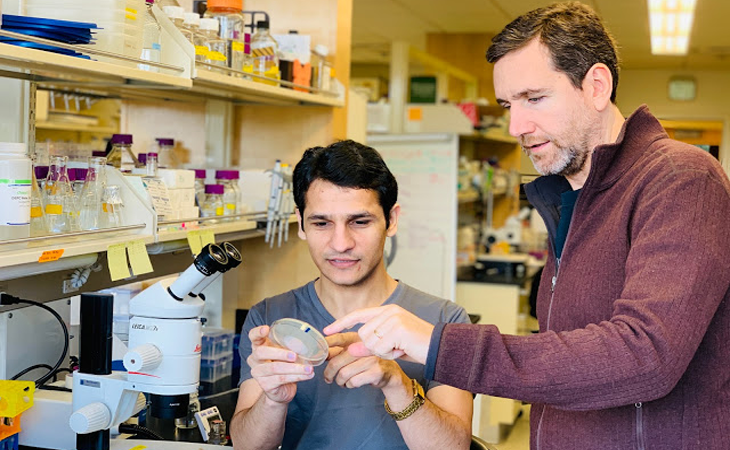
Understanding of the message from the gut to the nervous system may provide broad insights into the modulation of behaviors such as appetite and anxiety that are also linked with the sickness behavior syndrome.
MAY 04, 2019 | BY RATNESHWAR THAKUR
Humans are not the only ones who hate germs, even the tiny worms try to run away once they recognize harmful microbes. While it could be the psychological issues for humans but running away from pathogenic bacteria is a matter of life and death for tiny worms like Caenorhabditis elegans. Therefore to improve the chances of survival, organisms need to recognize potential pathogens and defend themselves.
Now researchers Dr. Jogender Singh and Prof. Alejandro Aballay from Oregon Health and Science University, USA have shown that in worms bloating of the gut caused by pathogen infection helps both in recognition of pathogenic bacteria and activation of defense mechanisms. The results of this study were published in the journal Development Cell.
Scientists have known that worms like Caenorhabditis elegans use bacteria that are non-pathogenic or beneficial, as its food source, but also encounter pathogenic bacteria. After feeding on pathogenic bacteria for a few hours, the animals learn to avoid the pathogen.
To understand this puzzle, researchers monitored changes in the nervous system as the gut of animals bloated. “It all made sense when we found that bloating of the gut was sending signals to the nervous system”, said Dr. Singh.
According to the study bloating of the gut happens on pathogenic, but not on non-pathogenic bacteria, these defense mechanisms are induced only upon feeding on pathogenic bacteria. Therefore the state of the gut (happy vs unhappy) could modulate defense mechanisms and induce behavioral changes.
It is known that pathogen infections in humans lead to behavioral changes called sickness behavior syndrome that includes symptoms such as lethargy, depression, anxiety, loss of appetite and sleepiness. However, it is not understood how pathogen infection evokes the sickness behavior syndrome.
In an organism, message from different tissues are received and read by different receptors in the nervous system. Interestingly, similar forms of the receptor, that receives message from bloating of gut in worms, are also found in humans and other animals. These receptors are involved in the control of a diverse set of behavioral processes, including appetite, biological clock, and anxiety.
The study was supported by grants from the National Institutes of Health, USA.
Journal Reference:
Microbial Colonization Activates an Immune Fight-and-Flight Response via Neuroendocrine Signaling
Acknowledgement: Special thanks to Dr. Rajesh Gunage (Stem Cell Biologist and Post doctoral Fellow at Children’s Hospital-Harvard Medical School, Boston, USA) for stimulating suggestions to make this report digestible for non scientific people.
